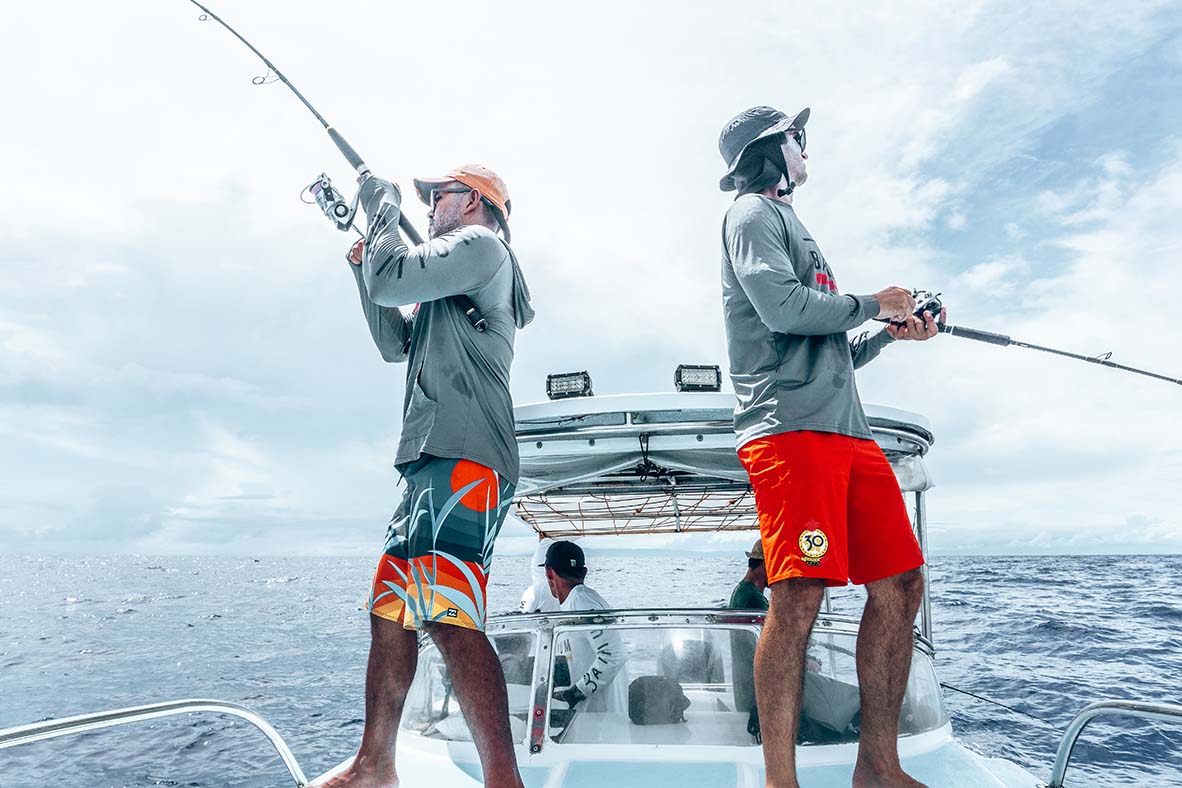Fishing in freshwater is very different from fishing in saltwater. It helps to learn the differences between the two environments so you can prepare better for a day out in the water.
The basic differences between freshwater and saltwater fishing can be broken down into three things:
- The kind and size of fish you want to catch
- The type of experience you want to have
- The gear you need
These things can help you figure out where you want to fish, or what to expect in these two environments.
Table of Contents
The kind and size of fish you want to catch
Obviously, the kind of fish you’d find in saltwater are different from the ones you’d find in freshwater. Some of the most common saltwater fish are tuna, tarpon, cod, sturgeon, and bluefish, but this will depend on where you are fishing. Some common freshwater fish are black crappie, rainbow trout, bluegill, and largemouth bass.
Fish that live in saltwater tend to be bigger. If you want to cook the fish you catch, saltwater fish have a more salty or briny taste than freshwater fish, which have a milder taste. Because ocean waters also tend to have a higher level of mercury, saltwater fish also contain more mercury than freshwater fish.
The kind of experience you want to have
It’s not just that saltwater fish are bigger, but that they fight harder than fish in a pond, lake, or river. If you’re fishing in the ocean, be ready for a lot of excitement. Some saltwater fish can fight for hours, so if you’re not prepared to put in some elbow grease, you should probably skip fishing in the ocean. Of course, if you want to have a more relaxed, laid-back time, you should fish in fresh water. If you’re a beginner, freshwater fishing is also a great way to learn and master basic fishing techniques before you fish in the ocean.
The gear you need
Saltwater is harsher on rods because of all that salt, so you would want something like fiberglass that can handle that. Saltwater rods are also designed to be stronger and more shock-absorbent, again because saltwater fish put up more powerful fights. You wouldn’t want to use your freshwater rod for saltwater fishing because there is a good chance it will break under all that force and tension.
On the other hand, you can use your saltwater rod in freshwater fishing, but make sure you wash and rinse it properly first to get all the saltwater out before you use it. If you’re a beginner just looking to buy gear, tackle for freshwater fishing is often cheaper because it doesn’t need all that salt protection.
Saltwater fishing is also often done from a boat. Even though you can fish from the shore, you'd need a boat to get to the bigger fish that live in deeper water. Boat trouble, the risk of going overboard, or unpredictable sea conditions, are also things to think about when fishing in the ocean. In freshwater fishing, you can fish both from the bank and a boat, and the water is much calmer, shallower, and less dangerous.
Still, keep in mind that you need clothing that will protect you from the water, wind, and sun in both freshwater and saltwater fishing. Just because you’re fishing in calmer and less dangerous freshwater, doesn’t mean you can dial down on protection from the elements.
Which is better?
So, which is better? Freshwater fishing or saltwater fishing? It boils down to the kind of fish you want to catch, your gear, and the kind of experience you want to have, and your current set of skills. In the end, both are amazing ways to spend time in nature and relax.
Want tips for anglers on a budget? Check out this post! And don’t forget to check out the Baitium blog for more fishing tips, tricks and updates!
MOST READ NEWS:
How To Use Your Fishing Records to Catch More Fish
Track your fishing trips, analyze patterns, and refine your techniques with a fishing log to catch more fish on every outing!
Solo Fishing Safety Tips: Stay Safe and Enjoy the Outdoors
Learn essential solo fishing safety tips: gear checklist, boat safety, emergency preparedness, weather monitoring & fishing location scouting. Stay safe on the water.
Secrets to Winter Fly Fishing Success
Master winter fly fishing with expert tips on trout behavior, essential gear, and proven techniques. Learn the secrets to catching more fish in cold weather.
How Cold Water Changes Fish Behavior: Insights for Anglers
Explore how cold water affects fish behavior and fishing techniques, enhancing your angling success and strategy.
Is Tech Making Fishing Too Easy? Exploring Forward-Facing Sonar (FFS)
Learn about forward facing sonar in fishing - what it is, how it works, rules for tournaments, ethics, and tips for finding fish with this game-changing technology.
Plan Your Best Fishing Trip Yet this 2025: A Complete Guide
Plan your fishing trip this off-season. Learn to choose destinations, prep gear, pick bait, and trust Baitium for expert tools and tips!
15 Fishing Resolutions for 2025: Set Yourself Up for Success
Discover 15 essential fishing resolutions for 2025: tackle organization, gear maintenance, angling techniques, conservation tips, tournament prep, and fishing safety guidelines.


